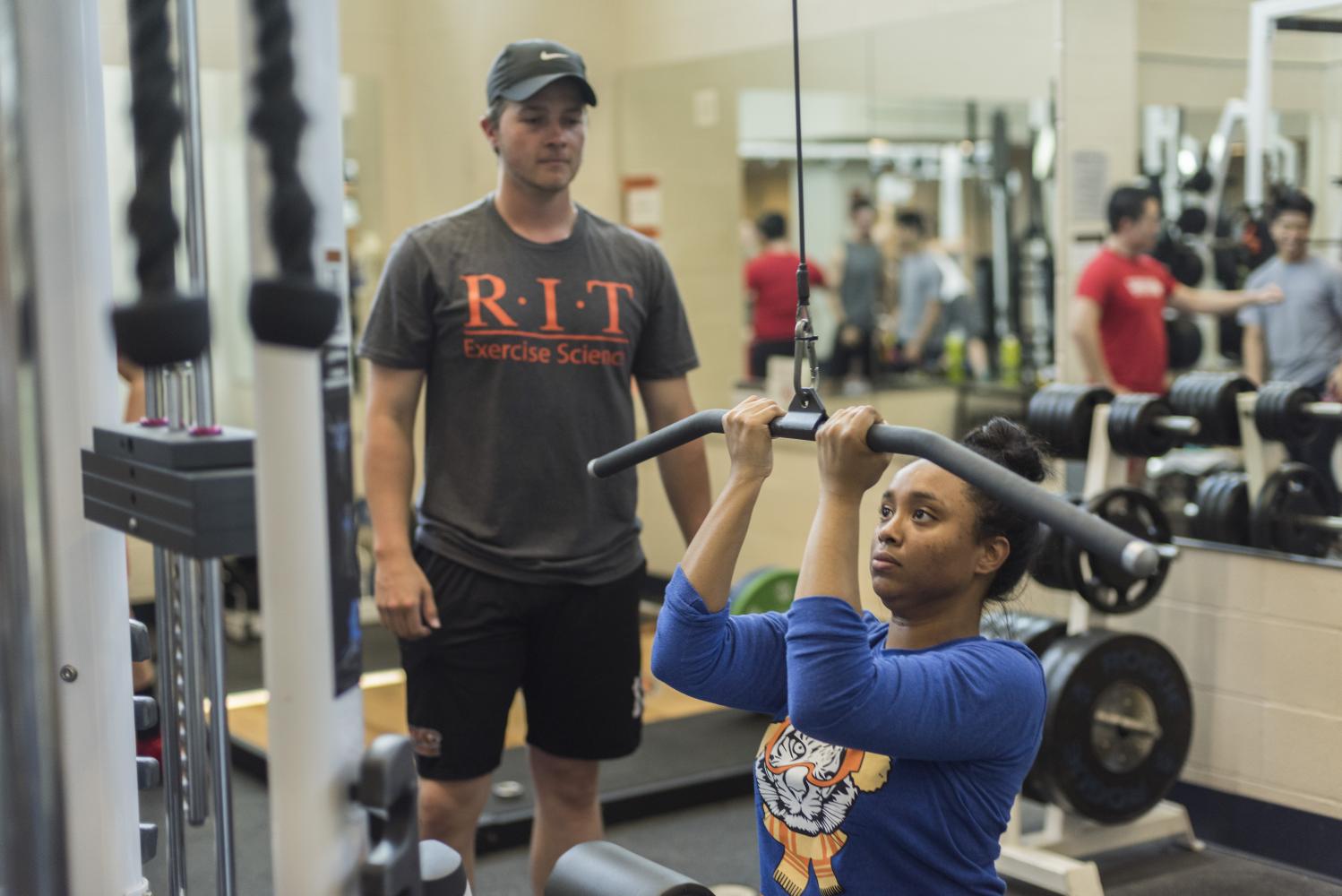The Domino Effect: Physical Fitness in College
by Samantha Wagner | published Aug. 1st, 2017
Coming into college, it’s not uncommon to hear of the infamous "Freshman 15." Most students are familiar with the claim that students gain around 15 pounds over the course of their first year. As much as we would like to think of this as another myth to brush off our shoulders, it is something students need to watch out for.
“Certainly weight gain is going to be an issue coming into college,” explained Seann McArdle, the assistant director of RIT’s Wellness Instructional Program. “You have a major disruption in not only your eating habits ... but other things that can also play a major role are your sleep cycle and the complete disruption to your overall environment.”
Rather than focusing solely on what you are eating, there are many other factors to take into consideration.
“So rather than come in and let that stuff just happen to you, have an active role in it and really be sensitive to those changes and be conscious of those changes,” stated McArdle.
Being proactive and reacting to this change will not only keep students from gaining weight, but physical wellness provides a handful of advantages that will have important impacts on their college experience.
“There are the obvious physical benefits that physical fitness provides you,” said McArdle. He explained how anyone can look up an infographic on what good things fitness can do for the body. However, the benefits do not stop there.
“Generally individuals that are more physically active, that exercise more regularly, that engage in healthy eating habits are going to also be able to be more successful academically,” McArdle explained. “They’re less likely to get sick, they’re less likely to feel depressed, they’re less likely to experience some of the things that would ultimately have a negative impact on your academic career.”
As described, keeping up physical health has a snowball effect on other aspects of life. Along with academics, mental and emotional health both have a direct correlation with how someone treats their body.
“It is very difficult to enjoy other aspects of your life if you’re not physically well.”
"So much of how we feel and the emotions we experience are largely driven by how we take care of ourselves," said McArdle. "It is very difficult to enjoy other aspects of your life if you're not physically well."
Social health is another factor affected by physical activity. Participating in physical fitness programs can be a way to meet new people.
McArdle gave an example. He said, “Generally if you engage in a group exercise class or even some of the fitness-based services we have here at RIT, it provides an opportunity for you to interact with other students you may not have otherwise.”
Overall, taking the steps to be physically fit during college has a long list of benefits ranging from keeping the dreaded Freshman 15 away to making friendships with people you may have never met otherwise.
"Physical wellness is the cornerstone to overall wellness," said McArdle.
“Physical wellness is the cornerstone to overall wellness,” said McArdle.
Keeping up with physical wellness will not only serve to better our bodies, but its domino effects will help benefit all aspects of our lives.




